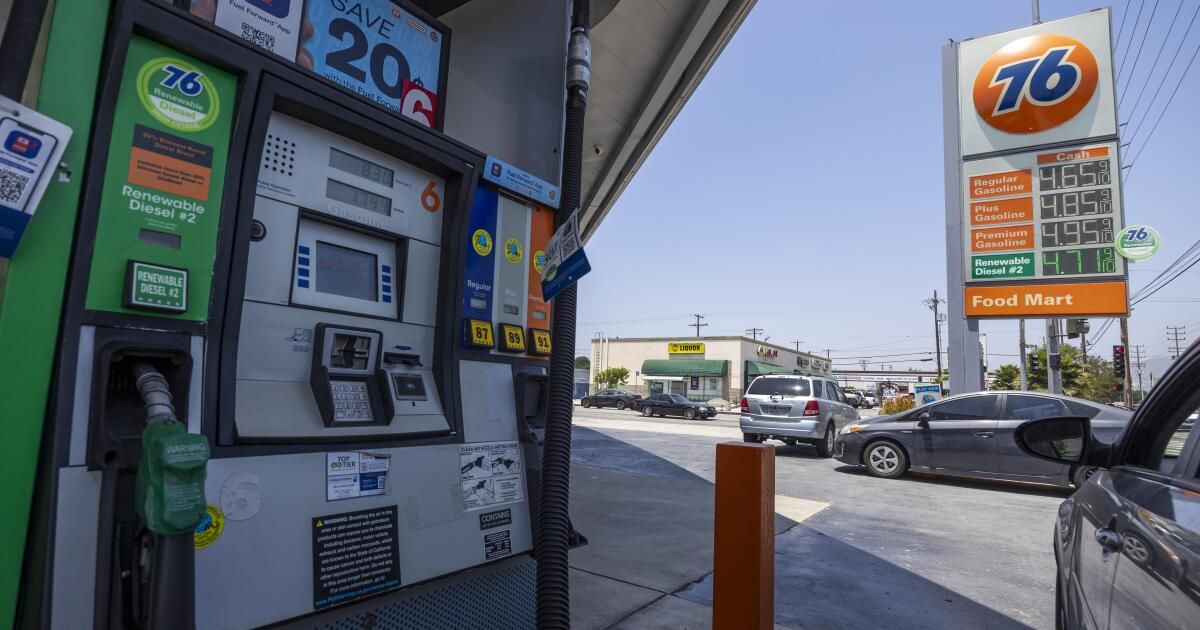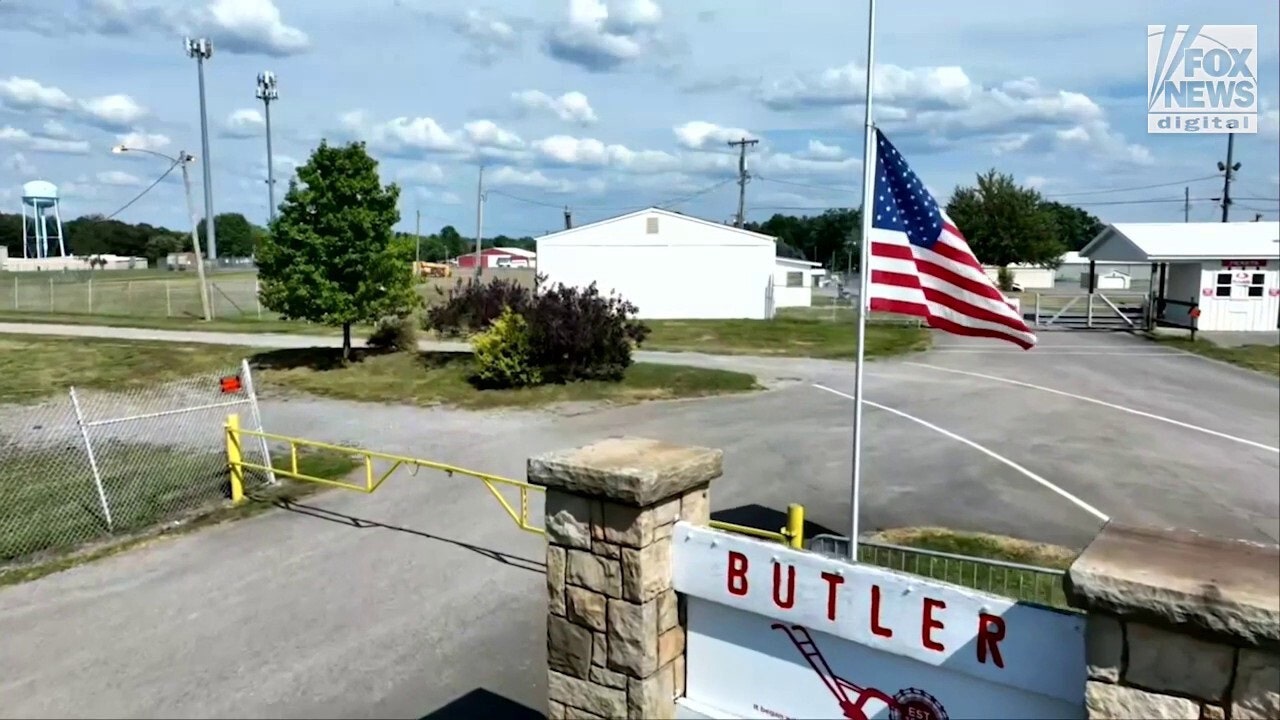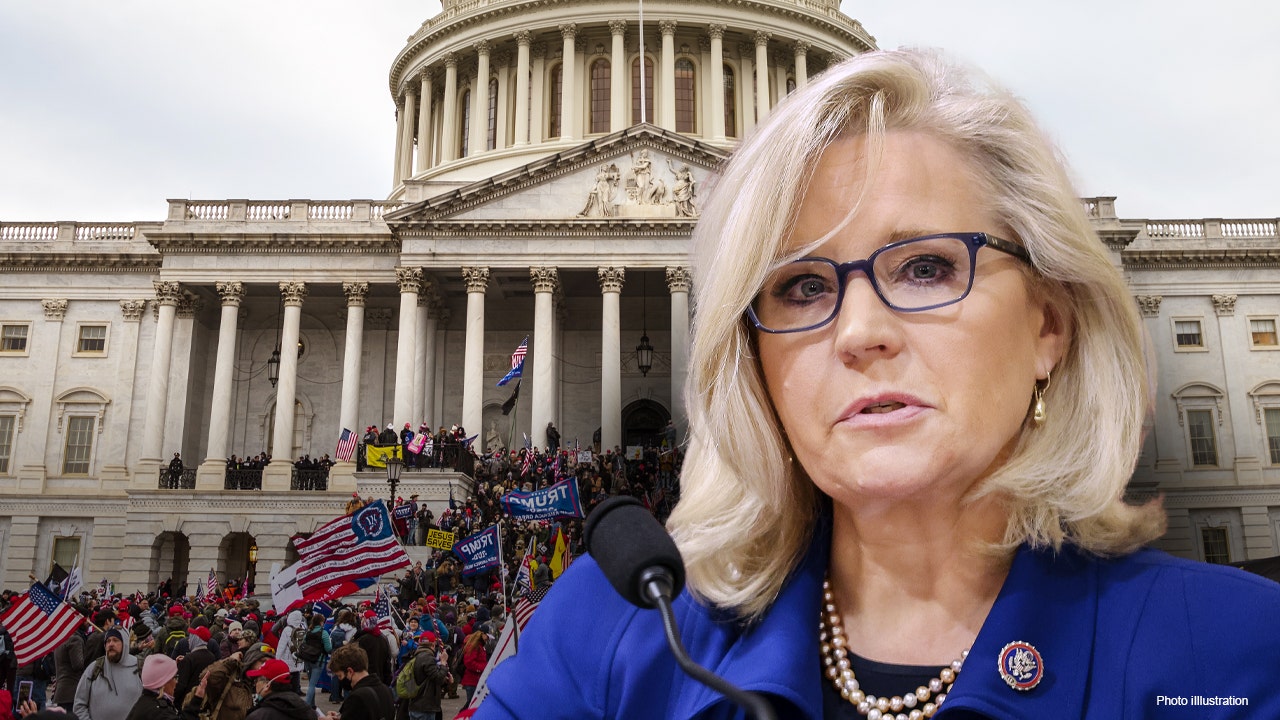In the latest episode of his political fight with Big Oil, Gov. Gavin Newsom on Thursday called on California lawmakers to approve new requirements for oil refineries during the final two weeks of the legislative session.
Newsom’s last-minute proposal, his office said, would allow his administration to require oil refineries to maintain a stable inventory to avoid fuel shortages and price spikes when refinery equipment is taken out of service for maintenance.
The plan marks a continuation of the governor’s campaign to blame the oil industry for high gasoline prices in California and another attempt by Newsom to force the legislation through the state Capitol. Newsom unveiled his proposal nearly two years after announcing a special session on oil prices that ultimately fell short of his call to limit industry profits.
“Price increases at the pump are profit increases for Big Oil,” Newsom said in a statement. “Refineries should be required to plan ahead and replenish supplies to keep prices stable, rather than playing games to make even more profits. By forcing refineries to act responsibly and maintain a reserve of gas, Californians would save money at the pump every year.”
After Democrats opposed the idea of penalizing the oil industry during the special session, lawmakers determined that state regulators needed more information about oil prices to understand and stop price gouging at the pump.
Democratic lawmakers last year passed a law that established new transparency requirements for the oil industry and gave the California Energy Commission the power to set profit limits and impose penalties through a regulatory process.
The law created the Division of Petroleum Market Oversight within the energy commission and gave it the authority to gather new industry data to investigate price spikes. Earlier this year, the division wrote a letter recommending the state impose minimum inventory and replenishment requirements for refineries based on its findings so far, arguing that oil companies were not holding enough refined gasoline to offset production shortfalls or protect against the impact of unplanned maintenance.
“This supply shortage was foreseeable and avoidable, but California refiners are under no legal obligation to maintain sufficient supply to adequately protect Californians from price spikes,” the division said.
Assembly Republican Leader James Gallagher (R-Yuba City) criticized the governor's proposal as “a half-hearted attempt to distract from that simple fact” that state policies are responsible for high gasoline costs.
“If Newsom really wanted to lower prices, he would streamline the approval process for new gas storage projects, stop pushing new regulations that will add even more costs, and make it easier to produce energy here in California,” Gallagher said in a statement. “Democrats have imposed the strictest regulations and highest gas taxes in the country, and all of that is reflected in the price at the pump.”
So far, it’s unclear whether Democratic lawmakers will back Newsom’s proposal or how they will respond if a bill is presented to them so late in the legislative process. The Legislature has about two weeks left to take action on hundreds of bills before the year ends at the end of August.
Newsom’s office said it discussed the plan with legislative leaders before making the announcement Thursday. The proposal has not yet been laid out in a bill and the governor’s office only summarized it in a news release.
“We are in discussions with the governor about his proposal for oil market oversight,” said Nick Miller, spokesman for Assembly Speaker Robert Rivas (D-Hollister). “Those discussions, as well as consultations with Assembly members, will continue.”
A spokesman for Senate President Pro Tempore Mike McGuire (D-Healdsburg) did not respond to a request for comment.
Newsom introduced the bill on the same day lawmakers fulfilled their end of a deal reached with the oil industry to stop a campaign to repeal a law that prevents new oil and gas wells from being drilled within 3,200 feet of homes, schools, parks and hospitals.
The California Independent Petroleum Association and other supporters of the rollback referendum campaign agreed in late June to withdraw the measure from the November ballot.
As part of a deal, Assemblyman Isaac Bryan (D-Los Angeles) said he agreed to limit the scope of another bill, AB 2716, which would have imposed a $10,000 fine for each day a “low-producing” oil well is operated within 3,200 feet of so-called “sensitive receptors.” Lawmakers officially amended the bill Thursday to apply only to the Inglewood oil field.
“As agreed, we limited the scope of this bill to the state’s largest urban oil field that sits directly in my district,” Bryan said. “It’s time for this oil field to pay a penalty for the harm it has caused to the surrounding communities and invest those funds into a sustainable future for the people who have lived around it.”
He said ensuring the original rollback law could go into effect immediately was “the most important environmental victory we could achieve all year.”












